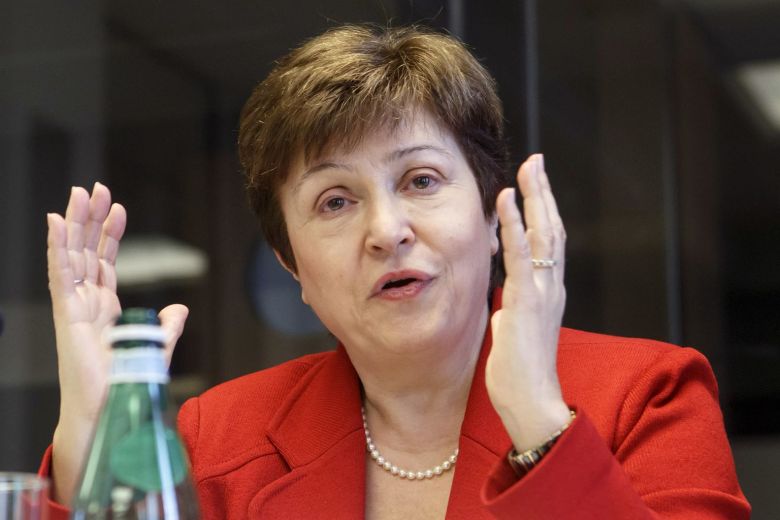Economy
Covid-19’s Lingering Impact is Fading Investor Optimism, Says IMF

The IMF is warning in its latest Global Financial Stability Report that Covid-19’s lingering impact is fading optimism among investors, which could lead to financial tightening in the medium term, Tuesday (October 12).
“Amid the prolonged and painful pandemic, financial stability risks have been contained so far. Financial conditions have eased since the start of the pandemic. This reflects the continuing monetary and fiscal support for the economy, which helped spur a rebound from 2020. Yet the sense of optimism which had propelled markets in the first half of the year has faded somewhat,” said Tobias Adrian, the IMF’s Financial Counsellor and Director of the Monetary and Capital Markets.
Key world economic policymakers are gathering in Washington, DC for the Annual Meetings of the IMF and World Bank.
“Uneven vaccine access, along with the mutations of the virus, have led to a resurgence of infections. Investors are increasingly worried about the economic outlook amid great uncertainty about the strength of the recovery. Anxiety about the inflationary pressures has recently pushed yields higher. As sudden and sustained repricing of risk could interact with underlying vulnerabilities, that could lead to a tightening of financial conditions, which could put growth at risk in the medium term,” said Adrian ahead of the report’s release.
A prolonged period of extremely easy financial conditions during the pandemic—which certainly has been needed to sustain the economic recovery—has allowed overly stretched asset valuations to persist. If that overstretch continues, it may, in turn, intensify financial vulnerabilities.
“Financial vulnerabilities continue to be elevated in a number of sectors, although vulnerabilities have eased in some areas since April. Policymakers are now confronted with a difficult tradeoff. They must continue to provide near-term support to the global economy, yet they must simultaneously try to avoid the buildup of medium-term financial stability risks. After more than a year, complacency appears as a real risk. Asset valuations remain stretched and risk taking persists. If left unchecked, such vulnerabilities could become structural legacy issues,” added Adrian.
Adrian urged policymakers to continue to provide near-term support to the global economy, even as they must simultaneously try to avoid the buildup of medium-term financial-stability risks.
“Policymakers should formulate action plans that would guard against unintended consequences. Monetary and fiscal policy support should be more targeted and tailored to the country’s specific circumstances, given the varying pace of the recoveries across countries. Central banks should provide clear guidance about the future approach to monetary policy and remain vigilant to avoid an unwarranted and abrupt tightening of financial conditions. If price pressures turn out to be more persistent than anticipated, they should act decisively to avoid an unmooring of inflation expectations. Policymakers should take early action and tighten selected macro prudential tools to target pockets of elevated vulnerabilities,” said Adrian.
In a context of higher price pressures, investors are now pricing in a rapid and fairly sharp tightening cycle for many emerging markets, although the increase in inflation is expected to be temporary.
“In emerging markets and frontier economies, policymakers should rebuild buffers and implement structural reforms. Some of those economies remain exposed to the risk of a sudden tightening in external financial conditions. Rebuilding buffers and implementing enduring reforms to boost structural growth prospects will be pivotal to cushion the adverse impact of capital flow reversals or an abrupt increase in financing costs,” said Adrian.
Adrian concluded his remarks by advising that now is the far-sighted policy action.
“With vulnerabilities intensifying and with policy support for economic growth having already been asserted to an unprecedented degree. This is a time for far sighted policy action. Policy action must be carefully crafted, aiming to avoid unintended consequences, which could put growth at risk, and which could lead to an abrupt adjustment in the financial market.” Said Adrian